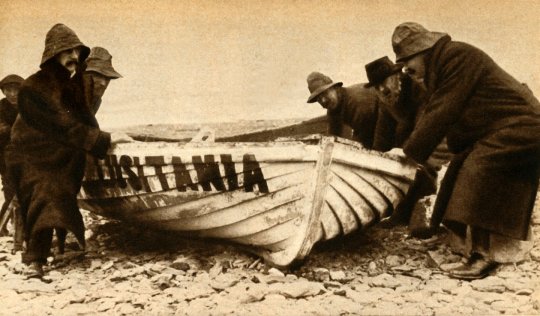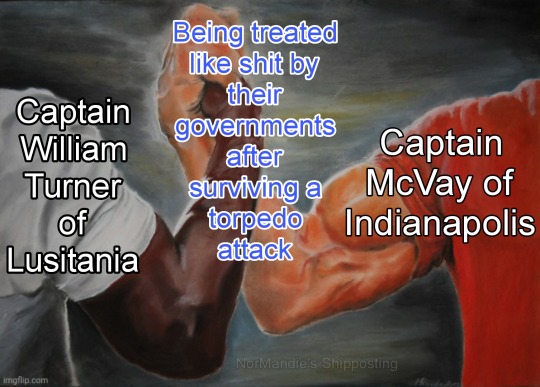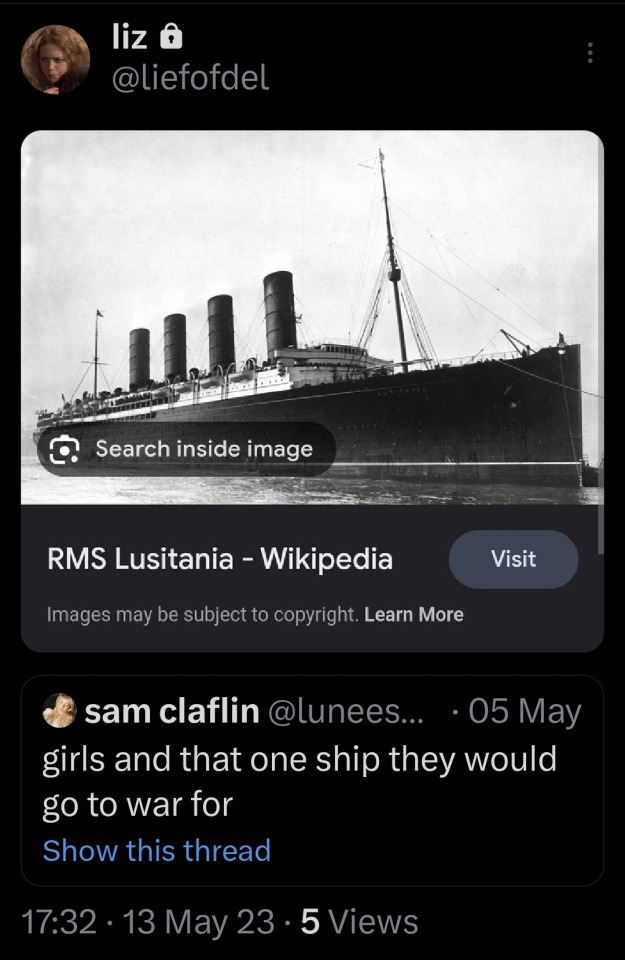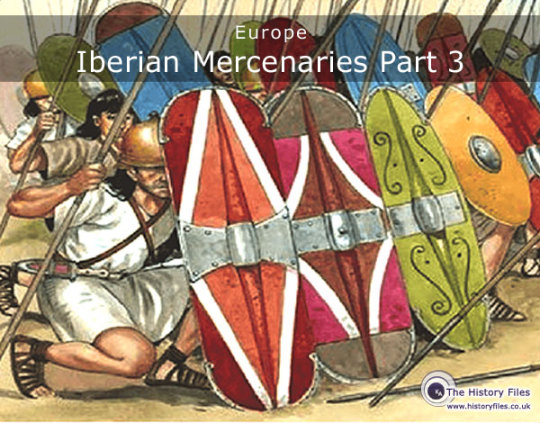#Lusitania
Text

Palacio Nacional de Mafra / Portugal (by Suzanne Tucker).
#portugal#visit portugal#mafra palace#architecture#baroque#royal palace#lusitania#unesco heritage site
1K notes
·
View notes
Text

Hauling in one of the Lusitanias boats, Ireland, May 1915, photographed by an unknown person
57 notes
·
View notes
Text

Continuing drawing ships. Lusitania and Mauretania
You can say "Aquitania is also in Lusitania-class!", but I didn't find any information about "Lusitania-class" existence, and Aquitania just does not fit in this ship-mold
#art#artists on tumblr#digital art#artwork#my art#teilzami#ship art#ocean liners#rms mauretania#rms lusitania#mauretania#lusitania#cunard line
23 notes
·
View notes
Text

37 notes
·
View notes
Text
I've realised the funniest way to end a historically set story. Have the ending be the main character getting on to a ship that sinks irl. Like the normal people reading will be like aw, this symbolises them moving on and shit completely unaware that this ship is gonna sink.
Meanwhile, people into ships reading the mc getting on the Lusitania on May 1st 1915:

13 notes
·
View notes
Text
Doctor Who Fanfic: The Greyhound's Wake
I completed an Eight & Charley pure historical fanfiction based around the last voyage of the RMS Lusitania.
It can be read here.
Was inspired to see if I could tackle it after reading Erik Larson's "Dead Wake: The Last Crossing of the Lusitania" as well as finding out about "Lusitania: The Greyhound's Wake", an in development interactive museum by HFX Studios (And the origin of the story's name)
#doctor who#dweu#doctor who eu#doctor who fanfiction#eighth doctor#charley pollard#rms lusitania#lusitania#pure historical#fanfic#writing#actually my first time writing the Doctor ever#big finish audios#the doctor#big finish#eighth doctor audios#plus a few references to the EDAs
10 notes
·
View notes
Text
☽About☾
I cannot resist the content creator instinct of doing an introduction post, so bear with me even though the vast woods of Tumblr know nothing of my name.
My name is Rosa - I have spawned on this social media because Twitter is dead and I remember Tumblr as a comfort from my teens - I consider myself a content creator (and have an almost masters to attest for such), semi-relevant in Portugal (TikTok and Instagram). I come to Tumblr not so much to expand my content creation, but more as a place separate from the ones I am used to - at the same time, I want to use this to share the knowledge I share in my portuguese socials.
Things that I am:
A Writer - mostly fantasy and YA (yes I will dump my OCs here);
An Academic - focus on Communication and Literature;
A Non-Binary Lesbian - who studies and writes queer theory;
A Pagan - specifically a lusitanian polytheist (although I ocasionally dip my feet in Greek and Celtic polytheism for reasons you will find out;
A Witch - or Bruxa, if you want to get cultural with it, since I practice portuguese folk witchcraft;
An Illustrator - devotional art with some fandom stuff here and there;
And of course, a Reader of all the things above;
Things that I do:
procastinate publishing my book;
two masters at the same time, because I'm a masochist;
kiss my partner;
rant and theorize about little known Gods in the hopes someone will vibe with them;
rant and retell portuguese myths (mostly the fae ones) in the hopes anyone will recognize that my country is it's own thing with it's own culture (and not bootleg Spain);
draw the Gods over and over again;
fight fascists on the internet (and give them mau-olhado in real life);
If you are interested in Culture, Literature, Folklore, Mythology, LGBTQ+ themes, Writing, Witchcraft - Follow along for the ride of me trying to figure out Tumblr again
#witchcraft#pagan#paganism#pagan witch#writing#writers on tumblr#writer#portugal#portuguese#queer#queer artist#lusitania#iberian#mythology and folklore#mythology art#mythology#artist
22 notes
·
View notes
Text

Me encanta este prompt de la IA pero la forma escrita del portushit parece alguien comiendo sus propios excrementos mientras bebe mucho semen, además de que me dan ganas de vomitar y descojonarme, ¡especialmente cuando leo y escucho esta mierda! 🤮🤢
¡No sé cómo el gallego evolucionó así de híbrido! 🙄
#cringe#nft#toilet#wc#baño#cristiano ronaldo#shitpost#memes#Lusitania#entity#hybrid#mutant#dialect#palabras#citas#frases#citas en español#textos#notas#escrituras#escritos#pensamientos#sentimientos#jajaja#words#quotes#phrases#football#fútbol#muscle
7 notes
·
View notes
Text
Cruelty is an Unreliable Weapon
The internet has been irritating me of late. This is in some sense, nothing new, but it has been irritating me very specifically in what I view as extremely wrongheaded thinking about the absence of any presence for morality in conflict. You can read between the lines if you so choose to infer what I'm discussing obliquely, but if you'd prefer, assume this is about people who are constantly whining that the Federation isn't tough or militaristic enough, or Galactic Empire apologists.
Settle in, get a beverage, because I got a bit wound up. This will take more than a minute. It clocked in at about 8 pages & 3600 words in Google docs.
Theories of Power and Victory
Two contentions are often made in discussions of war and conflict:
That the capacity to resist equals bargaining power without taking into consideration the manner of resistance i.e. committing atrocities.
The second is that suffering hastens the end of conflict.
Let's examine this. I’m going to primarily lean on case studies from World War 1 because they allow me to speak about modern conflicts via allegory. Allegory by necessity obfuscates the real message the reader is expected to take away from this.
I am at peace with this. If I tell you what to think about the conflict between the United Federation of Dave Filoni Truthers and the Galactic Republic of Rian Johnson Apologists, you will be more inclined to be combative.
If I engage in a bit of obfuscation, then you’ll be more inclined to take these case studies as they are intended. These are thought experiments and frameworks. My hope is you use them to think through modern conflicts where you may be more inclined to fully dehumanize the evildoer or wave off complaints about the behavior of the righteous as “regrettable but necessary.”
Loosening Rules of Engagement: Almost Always a Bad Idea
In World War 1, there was a continual escalation as all sides sought new innovations to break the deadlock. This took the form of both new weapon systems but also new strategies.
Technically commerce raiding is arguably as old as the idea of putting trade goods on a boat, but the usage of submarines definitely represents an escalation and innovation on that idea. In theory we were beyond the days of letters of marque. Assaulting civilian shipping would be considered atrocious and ungentlemanly in normal times.
However, in an era of total national mobilization, it is the very foundations of the nation that are supposedly necessary to be chipped away at in order to try to obtain the defeat of the enemy. In the arguments made under conditions of total war, there may be non-combatants but there are no persons who are truly uninvolved because in a total mobilization, everyone is contributing to the war effort whether with their sweat or their blood.
Even children, especially in the late Victorian era, are net contributors because they take on responsibilities formerly held by adults and, if the struggle is prolonged, will grow into adults who can be drafted or more fully contribute to the industrial effort.
Yet the enemy doesn’t stop thinking of their children as children. The enemy doesn’t stop thinking of their non-combatants as civilians, even as the enemy rationalizes their way into killing the children and non-combatants of their opponents.
So what happens when Germany expands its commerce raiding to include civilian liners suspected of carrying arms ought to be very predictable. The story of the US entry into WW1, if it's told at all - and that’s another bag of badgers - often centers on the sinking of the passenger liner Lusitania.
Arguably the sinking of the Lusitania does hasten the end of the war, but not even remotely in the way that Germany anticipated and definitely not in its favor. It's important to note that the story is not so neat and tidy. The Lusitania is often held up as an inciting event, but the US doesn’t enter the war for another two years when Germany resumes unrestricted submarine warfare.
Rather than say “my bad, you’re right, we shouldn’t have tried to play silly games with sending weapons on passenger liners” the US entered the war in an official capacity. The US entry into the war wasn't decisive right away, it was arguably even more bumbling and horrific as the first year of the Russian invasion of Ukraine, but it makes the endgame that much more inevitable for the Central Powers.
Don’t blur the lines between military and civilian.
Germany essentially walked into the trap that Britain baited with international civilians. There are no objectively correct moral actors in this situation but we can certainly dissect the consequences, especially for Germany, of having elected to not take the high road.
When it comes to the US entrance into the war, this story is complicated by the fact that there was a strong contingent of Manifest Destiny true believers who didn’t look at the Western front and feel appalled at how far honor, nationalism, hate, and sunk cost would drive people. Rather instead they saw an opportunity for the US to take her rightful place as a key player in The Great Game.
So it's easy to argue that absent the sinking of the Lusitania, the US would have been dragged in anyway. It was, after all, the biggest creditor of the Entente and were Britain, France and friends to lose, it's quite likely that repaying the Americans would come second to compensating the Central Powers for the inconvenience of having to send millions of people into what amounts to a wood chipper.
However, the sinking of the Lusitania definitely moved up the timeline of the US entry into the war. A thing that could have been delayed, and perhaps even prevented if one or more Black Swans had scrambled US domestic politics. Because the Germans failed to practice a stricter set of rules of engagement, a new player takes the field, the US is able to arm Britain and France more prolifically and openly, and Germany’s goose is pretty well cooked. The only question being how long it was going to take to cook that goose.
While there was certainly malice, pride, and national chauvinism involved in creating conditions in which Germany would be tempted to escalate by striking ships with Americans onboard, there’s no ironclad law of physics or human behavior that dictates the US was going to enter the war.
Had the United States wanted to stay out of the war it could have made a range of different choices, some of which arguably were against the prevailing understanding of its “national interest” and some could be read as rewarding German threats of “terrorism” against civilians, but “bad” options are still options:
Forbid mixed use Entente ships from using US ports.
Forbid American passengers from booking passage on Entente ships carrying weapons.
Warn Americans that their personal security is their responsibility and if they do enter contested waters on a ship that might be considered a legitimate target, they’re on their own.
The British own part of this too: it was their choice to comingle arms shipments and civilian passengers.
It goes without saying that the Germans also weren’t obligated to sink Lusitania.
Of course this choice is complicated by a whole host of contextual factors: British ships had been instructed to try to ram German submarines instead of submitting to boarding and inspection, and some British civilian ships had been armed.
Allowing Lusitania to go along her way peacefully also rewards the British for using human shields.
I don’t find the Germans morally praiseworthy here, but the British deserve heaps of scorn for intentionally putting civilians in danger in order to prioritize winning a war that was anything but existential for it and then daring the Germans to kill civilians to disrupt the British war effort.
What happens if the Germans don’t take the bait? Well, the war definitely goes on and is that much harder for the Germans but they retain a measure of the moral high ground.
Could this win them useful allies in the court of global public opinion?
Or at least keep certain disruptive players like the US out of the war?
The US was the last great power to not take a side as of when Germany and the UK began their nautical shenanigans with tragic consequences. It's doubtful the US could be compelled to enter the war on the side of Germany, hence why Germany could have understood its situation as necessitating unrestricted warfare against not merely the Entente militaries but the Entente people themselves.
However, again there is nothing inevitable here. There are a lot of reasons why the US staying out of the war was unlikely, but it's far from impossible - I don’t believe in historical inevitability, just higher or lower probability.
Because of this lack of inevitability, it is worth restating the moral proposition Britain cast aside:
Don’t comingle military and civilian.
You ignore this advice at your own peril. The consequences are entirely predictable.
The US may very well have not come charging in to bail out the Entente. It could have sat on the sidelines and cut support for the Entente to punish the UK for putting foreign civilians at risk. I think it would have been VERY morally defensible to do so.
There are scenarios, such as insurgency, where the camouflage of being civilian in appearance is necessary if armed struggle is to be at all viable, but again the consequences for “real” civilians are very predictable.
That doesn’t mean the party that winds up killing civilians, intentionally or unintentionally, is morally blameless: it's a choice to loosen rules of engagement or to not exercise even greater care when dealing with ambiguity. There is no mandate to kill civilians through recklessness, indifference, cruelty, or to deny the enemy an advantage.
Everything is a choice.
Immoral choices are rarely unavoidable. Accidents truly happen and are tragic, but caution isn’t a frivolous thing to be cast aside for convenience or galaxy brained theories about psychological warfare as Germany’s fate demonstrates.
Yet, to beat a dead horse, to say that those who blur the lines between combatant and noncombatant have no responsibility for what happens to noncombatants is also deeply disingenuous.
Suffering is an Inconsistent Weapon at Best.
There’s a deeply felt conviction among some that hardness wins wars faster. As near as I can tell the premise usually comes from one of two sentiments.
The first is that the enemy, being a rational actor, is capable of “doing the math.” Once they understand what the aggressor is willing to do to win. How far they’ll go, then every day that surrender is deferred is just more rapes, homes burned, prisoners tortured, more famine, more suffering: pick your poison. Therefore the reasonable and moral thing to do is to just get it over with.
The Romans are probably the most famous example of a people who practiced unmitigated savagery when a city didn’t surrender promptly in order to induce others to not resist in the expectation of gentler treatment. This is a practice that preceded the Romans and I’d argue that it's unlikely that there is any corner of the world where there was no close parallel at some point in time.
While we can’t know for certain until and unless Russian archives are made available at some point in the future, it's tempting to ponder whether or not this mindset has influenced Russian atrocities such as in Bucha. The Romans were also guilty of not always being able to prevent their legions from going berserk even when a city was compliant.
Inflicting cruelty to try to induce surrender is almost definitely one motive behind the targeting of Ukrainian civilian infrastructure, especially electrical equipment during winter time. Which informs us that this mindset does continue into the present day, just expressed in different forms and contexts.
The second assumption is that sufficiently intense or broadly inflicted suffering would shatter the will to resist on a psychological level: creating panic, terror, disorder etc. We see this in its most straightforward form on ancient battlefields when armies rout after an understanding filters through the ranks that things are starting to go pear-shaped.
Whether or not this model can apply to something on the scale of a region or a nation is disputed and the answer probably is more about worldviews than objectivity.
If panic on the scale of a nation is possible, then panic doesn’t always achieve the desired result.
One might argue for instance that Western and especially US Islamophobia drove the US and allies to make a series of unforced errors with a human cost in the millions and still counting as the ripple effects are still rippling even after all this time. Calm and collected people may have been drawing lines on maps and debating the “get in and get out” or “if you break it, you bought it” models of war, but in the background is a subtler, longer term, persistent panic and existential dread induced by 9/11.
Of course it could have just been some mix of racism and imperialism. If that were the case then ascribing fear to the motives of Bush, Cheney, and the alumni of The Project for a New American Century incorrectly offers the villains the opportunity to plea bargain the charges down from War and Failed Occupation in the 1st degree to War and Failed Occupation in the 2nd degree.
For whatever it's worth the excellent podcast series Slow Burn: The Road to the Iraq War persuaded me that the primary, conscious motive was rooted in a broken epistemology about how to combat terrorism, the threat posed by Iraq, American capacities, and further sabotaged by philosophical infighting over to what degree and how to nation build that manifested in real world consequences for how resources were allocated, rules of engagement written, and which personnel got key jobs.
Let's return to World War 1, because it has probably more than just the two illustrations that are relevant here but I’m just going to limit it to two.
However, it's worth revisiting poor but possibly perfidious Lusitania, whose souls aboard needlessly died because the Germans decided to be edgy and declare the waters around the UK to be a free fire zone. Then the UK responded with “I dare you to enforce that” and put arms on civilian liners anyway.
Harshness did not, in fact, have the desired outcome for Germany. It failed to deter Britain from using dual purpose shipping and then following through with their threats ultimately escalated the conflict. Ultimately it's unclear if Britain’s will to continue the fight was impeded in any way and the popular narrative is that it galvanized resistance.
Although information warfare may have played a role too: the British government denied any violation of any of its obligations under pre war treaties or any violation of general decency: i.e. putting civilians at risk without their knowing consent. Messaging and the possible absence of knowing consent on the part of civilians is also worth holding in our heads when weighing the morality of ensuring the homefront is made to feel pain too.
Bringing the War to the Homefront
The British blockade of Germany in World War 1 has two rationales. One is that in total war, as discussed previously the civilian population is playing a very active part in sustaining combat operations. Attritional war is an effort to ensure that your side is not the first to run out of people or stuff. The average person is a lot more aware of this due in no small part to the way the Russian invasion of Ukraine in its second year has calcified into heavily fortified battlelines with much, much less in the way of dramatic maneuvers than in 2022.
The introduction of various destabilizing weapon systems: Javelin, Excalibur rounds, HIMARS, Stormshadow etc. has at each step momentarily unsettled the balance of power but Russia continues to be able to field enough people and material to absorb the losses and then adapt while Ukraine is, unfortunately, reliant on the patronage of allies and what industrial capacity it can scrape together and protect from Russia: no small feat in an era of satellite surveillance, rampant hacking, and cruise missiles.
Notably Ukraine or Russian partisans acting on their own accord or with assistance, have struck at various bits of Russian infrastructure and industrial sites.
This has made some commentators uncomfortable whether because of natural anxiety at seeing the homefront of a nuclear power get hit or a certain amount of hesitancy to label these as legitimate targets. Something Russia is not even a little squeamish about, nor (more controversially) was the US squeamish about during the first Gulf War.
Saddam Hussein notably would continue to be the ruler of Iraq, even under sanctions and bombing campaigns of varying intensity until the US led invasion in 2003.
Which brings us to the second rationale for the British blockade of Germany: punishment with the expectation that it would eventually break the German people. This included food. While this didn’t completely cut off Germany from food imports, the necessity of neutral ships to be inspected and escorted to Germany at minimum had a chilling effect that clawed back 55% of imports of all types and cut the average German down to 1,000 calories a day by 1917.
That’s one large McDonalds meal per person per day and that’s about it. I once had a salad, A SALAD, from Applebees that wound up having over a thousand calories.
Now of course, the success or failure of the blockade is disputed by historians. I have a lot of respect for the profession, but it’s also not hard to imagine that there is some motivated reasoning involved.
When a nation does something that is controversial in its own time, as the blockade was, and winds up killing between 400,000 and 800,000 people through among the cruelest of means: famine, if it turns out that these actions didn’t directly contribute to ending the war sooner, the nation who inflicted this on their fellow human beings is not exactly the hero of the story now are they?
So of course the desire is going to be very strong to gesture at problems with disorder, looting, and the increasing poor health of the military and civilian labor force as having made strong contributions to ensuring the war didn’t last longer and claim even more lives.
On the other hand, average caloric intake fell to a Special Value Meal per day (and probably much worse if you look at essential vitamins and protein) and the Germans kept going for five years. It's possible that absent the blockade, the war lasts even longer but that’s a counterfactual we simply cannot realistically examine because life isn’t an Excel sheet.
Duration also doesn’t necessarily directly map to intensity. If the war is not perceived as an existential struggle because both sides are attempting to collapse one another’s very societies to set conditions for peace on their terms, how does this change the tactics used in the field and the overall strategy?
Because if there is one point I want to hammer home it's that the perception of a war as being existential is intensely radicalizing. People will endure suffering that is unimaginable to people sitting in comfort and safety if they are operating under the belief that if the war isn’t won, the nation and its people will experience even greater suffering than they are experiencing under conditions of war, or even that the nation may cease to exist, its people scattered or massacred.
It's even harder for us to imagine that concepts like the German or British Empires might be worth “going over the top” for, or sitting around never knowing if a poison gas attack is going to be launched in your sleep. Or more nightmarishly: that you might feel so deeply that the fate of your nation is at risk, that it might be worth executing your subordinates for cowardice if they don’t attack enemy fortifications.
Of course there is also the example of modern Ukraine. It is rather clear that the people of Ukraine have taken very seriously the statements of Russian high level people that “Ukrainian” is an invalid identity that must be made to be subsumed into the Russian identity. One does not have to be an ardent nationalist, and I am not, to find this to be more than a little concerning.
It's not hard to imagine that extremely bellicose rhetoric from an opponent, when combined with growing suffering on the homefront and no doubt plenty of propaganda proclaiming the enemy to have an exterminationist agenda, would radicalize even people who are ambivalent to their government.
In 2002, it was widely expected that mounting casualties and a worsening economic outlook due to the war in Ukraine would seal Vladimir Putin’s fate. At the close of 2003, with nearly two years of fighting and one half baked mutiny in the books, Putin remains and is seemingly even more secure in power.
This is a more problematic example because it's hard to conceive of any strategy Ukraine or its allies can undertake that would preserve Ukraine’s autonomy while not generating at least some evidence to support Putin’s “Big Lie” about Russia being a victim pursuing legitimate security interests. Yet, in spite of this, great effort appears to have made to avoid feeding that Big Lie unnecessarily.
As of this writing, Ukraine has not pursued targeting Russian civilians directly either as an explicit policy nor is there much if any evidence it is doing so implicitly. Some in the amateur punditry of the fever swamps of social media have proposed Ukraine pursue payback against Russia for Bucha and other atrocities, but I think history shows this would be deeply, deeply mistaken.
Intellectual honesty compels me to hold up this example: sometimes a nation (Russia) (or just its political elite) can be responsible for the vast majority of the suffering its people have experienced and yet this too can be contextualized to fit a narrative that casts a struggle as existential, centers the chief provocateur as victim, and some critical mass of people will go along with it, rather than reject it and collapse the war effort from within.
Notably, while World War 1 shattered the Russian Empire, the various transitional governments between the end of Czarist rule and the eventual takeover by the Bolsheviks did not exit the war.
Consider all of these case studies, all ye who would dismiss rules of engagement as unworthy of dishonorable foes or inefficient, and would dismiss concerns about excessive cruelty or collective punishment as soft and defeatist.
#War#rules of engagement#ethics#cruelty#the great war#lusitania#Triple Entente#Central Powers#world war 1#laws of war#atrocities#crimes against humanity#collective punishment#escalation#current events
11 notes
·
View notes
Text

Algarve Coast / Portugal (by Henry Do).
#travel#europe#portugal#algarve#seascape#seacliffs#bucketlist#sunset#adventure#wanderlust#placestovisit#portogallo#lusitania#beach#holiday
1K notes
·
View notes
Text

#no one will appreciate this on twitter bc im on private but this is fucking funny#liz.txt#history#how do i even tag this...#wwi#lusitania#??????????
24 notes
·
View notes
Text
Torre de Hércules, el mundo antiguo se mantiene en pie
Torre de Hércules, el mundo antiguo se mantiene en pie
#aperturaintelectual #vmrfaintelectual
@victormanrf
@Victor M. Reyes Ferriz
@vicmanrf
@victormrferriz
Víctor Manuel Reyes Ferriz
23 DE ABRIL DE 2024 Torre de Hércules, el mundo antiguo se mantiene en pie
POR: VÍCTOR MANUEL REYES FERRIZ
Hemos escuchado, en reiteradas ocasiones, que algunos monumentos alrededor del mundo se han ido “fechando” es decir, que gracias a las nuevas tecnologías se puede conocer más detalles sobre las fechas en que fueron creados; de hecho, incluso, se puede llegar a esclarecer un poco más el…

View On WordPress
#AperturaIntelectual#vmrfaintelectual#A Coruña#Brigantium#Cuerno#Egipto#Faro de Hércules#Finis terrae#Gayo Servio Lupo#Imperio romano#La Coruña#Lusitania#Península ibérica#Ptolomeo I#Punta Eiras#Término fenicio "a Karn"#Torre de Hércules#Víctor Manuel Reyes Ferriz#VMRF
2 notes
·
View notes
Text
Just finished watching a documentary on the Lusitania that featured excerpts of interviews with survivors taped in 1965.
A number of women calmly accouted how the 'escaped' the ship with their baby in their arms, only to lose hold of the baby as they were pulled underwater; and that is how they all said it: "my baby".
At the end of the documentary they played an excerpt where one woman calmly recounted how her child's body was found later washed up on the beach, and was identified by the name label in her clothing. The interviewer then asked what her baby's name was, and it was absolutely heartbreaking, after a long pause, to hear that mothers voice break as she answered "Marjorie".
2 notes
·
View notes
Text
i fucking love the titanic (and shout-out to the lusitania)
but no one should ever go into the ocean.
17 notes
·
View notes
Photo

Off to check out the Lusitania, who wants to come with?
10 notes
·
View notes
Text

Iberian Mercenaries 3: Infantry
Iberian armies were usually small in comparison to those of other Mediterranean powers, often being formed around specific chieftains and war leaders whom they venerated, such as Viriathus of Lusitania.
#history#historyfiles#iberians#spain#ancient spain#ancient europe#iberian mercenaries#mercenaries#lusitania#rome
2 notes
·
View notes